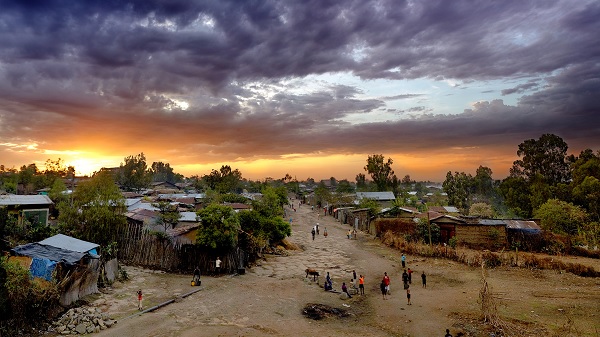
The project uses the Climate, Land, Energy and Water Strategies (CLEWs) methodology to undertake integrated assessments across diverse resource systems and assess their impacts on – and vulnerability to – climate change.
By Wangu Mwangi (IISD)
Three Ethiopian-based UN entities have embarked on a joint project to enhance institutional capacities to address “catastrophic” climate change and variability impacts across multiple development sectors. The initiative brings together the UN Economic Commission for Africa (UNECA), the UN Department of Economics and Social Affairs (DESA) and the UN Development Programme (UNDP) in collaboration with several government ministries.
The project focuses on two interrelated areas: the application of integrated quantitative analysis to address interlinkages between climate, land, energy and water systems; and institutional arrangements and mechanisms to facilitate effective and structural coordination among stakeholders in these areas.
The project uses the Climate, Land, Energy and Water Strategies (CLEWs) methodology to undertake integrated assessments across diverse resource systems and assess their impacts on – and vulnerability to – climate change.
The analytical framework is designed to provide policy-relevant insights, information and quantitative estimates. It can help: identify interlinkages among sectors; determine likely quantitative aspects of such interlinkages; identify robust relationships and key risks; and explore technology and policy alternatives to mitigate unwanted outcomes.
The project is also exploring technology and policy alternatives to realize co-benefits across diverse Sustainable Development Goals (SDG)/ targets.
Source: IISD
——
Other stories:
- UNDP enhances support for Ethiopia’s reform agenda & goal to meet SDGs by 2030
- Ethiopia is committed to support Basic Service Delivery and System Strengthening programs
- U.N. 2018 Women First 5km held in Addis Ababa, participants’ number tripled since inception
- In Addis Ababa, African Union and United Nations signed new agreement to bolster their collaboration on range of global issues
- Ethiopia Won the 2017 United Nations’ Award for Excellence in Promoting Investment in the Sustainable Development Goals (SDGs)
